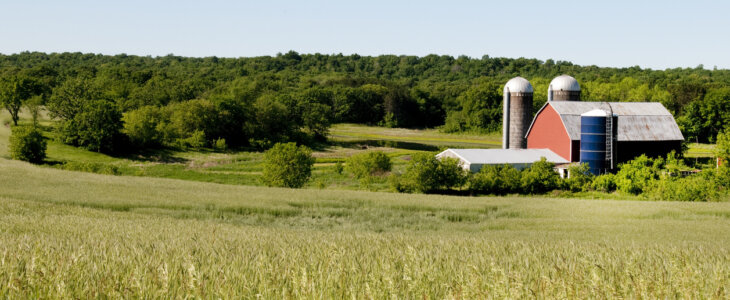Owning a family farm in Wisconsin means carrying forward both a livelihood and a heritage. The years of effort, care, and dedication that built it deserve to be honored in the way it’s passed down. Making sure the next generation can carry on that work calls for more than informal agreements. It takes a clear farm succession plan that reflects your wishes, supports your family, and helps the farm remain strong for years to come. At Borakove Osman LLC, we help Wisconsin farm owners create plans that balance both the personal and practical sides of this important transition.
Why a Farm Succession Plan Matters
A farm succession plan is your roadmap for what will happen to your farm when you retire, step back from daily operations, or pass away. Without a plan, decisions may be left to chance or to state law, which might not reflect your wishes.
Your plan should aim to:
- Protect the long-term viability of the farm
- Treat all heirs fairly, whether they are involved in farming or not
- Minimize family disputes
- Reduce potential tax burdens
- Clarify decision-making responsibilities
Core Components of a Farm Succession Plan
While every farm and family is different, most farm succession plans include these key elements:
1. Ownership Transfer Strategy
You’ll need to decide who will own the farm in the future. For many Wisconsin families, this means transferring or selling the farm to a family member who has been actively involved in operations. Common options include:
- Gifting the farm during your lifetime, which may reduce estate taxes, but requires careful planning to avoid gift tax issues.
- Selling the farm to a child or other relative, potentially using seller financing to make it affordable.
- Gradual ownership transfer over time, allowing the next generation to gain experience and build equity.
2. Providing for Non-Farming Heirs
One of the most sensitive parts of farm succession is deciding how to treat children who are not involved in farming. You might:
- Leave them other assets, such as savings, investments, or life insurance proceeds
- Provide them with equal settlements of money, stock, or other property
- Allow them to inherit certain parcels of land not critical to farm operations
This helps preserve family harmony while keeping the farm viable for the next generation of operators.
3. Business Operations and Management Plan
The success of a farm doesn’t depend solely on who owns it; it also depends on who runs it. Your plan should clarify:
- Who will manage the day-to-day operations
- How major decisions will be made
- How to handle unexpected challenges like illness or market downturns
If you’re passing the farm to children or relatives, a period of joint management can help ensure a smoother transition.
4. Legal and Financial Documents
A strong farm succession plan is supported by the right legal documents, such as:
- Updated wills and trusts
- Partnership or operating agreements if the farm is structured as an LLC or partnership
- Buy-sell agreements if multiple owners are involved
- Powers of attorney and healthcare directives
These documents work together to formalize your wishes and make the transfer legally enforceable.
Steps to Get Started
If you haven’t started your succession plan yet, you’re not alone. Many farm owners put it off because it feels overwhelming. Breaking it into steps can help:
- Talk with your family about your vision and expectations.
- Identify your successor(s) and confirm their interest and readiness.
- List all farm assets and debts, including land, equipment, and livestock.
- Meet with advisors, such as an estate planning attorney, accountant, and possibly an agricultural consultant.
- Put your plan in writing and review it every few years or when circumstances change.
Why Work With an Attorney?
Farm succession involves more than passing on property — it’s about preserving your family’s way of life and avoiding disputes. An attorney can help you:
- Structure the transfer in a tax-efficient way
- Draft and update the legal documents you need
- Ensure your plan works under Wisconsin law
- Coordinate with your financial and business advisors
At Borakove Osman LLC, we understand the unique challenges Wisconsin farm families face. We will work with you to create a plan that reflects your values, protects your heirs, and supports the continued success of your farm.
Planning Today for Tomorrow’s Farm
Planning for the future of your farm is one of the most meaningful steps you can take for your family and your legacy. A well-crafted succession plan can help you preserve a way of life for generations to come. At Borakove Osman LLC, we will guide you through each step, making sure your wishes are clear and your family is supported.
Contact us today to schedule a consultation and start building a plan that protects both your farm and your family’s future.

